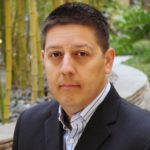By Brian Hofer

Dear members and allies of Oakland Privacy:
2017 has been both a remarkable and frustrating year. While the raging dumpster fire that is our national political discourse seems to get worse by the day, Oakland Privacy and our allies have successfully pushed a ‘self-defense’ philosophy throughout the Bay Area and California to enact legislation and policies that will protect the civil liberties of everyone, not just the privileged few.
Sanctuary
We again dominated the headlines with our #DeportICE sanctuary campaign, when our large coalition convinced the Oakland City Council in July to sever a task force agreement with ICE. Along with our coalition partners, we helped push a Stop Trumpintelpro ordinance through the Privacy Commission and Oakland City Council with unanimous votes. This remarkable legislation requires higher policing standards and transparency around federal task force operations that Oakland might participate in. Although it was mooted by the subsequent adoption of SB31 in California, we successfully advocated for a similar anti-registry ordinance before the Privacy Commission, where it received unanimous support.
Following the path of Oakland’s anti-nuke law (our old friend, Measure T), and a new law banning city business with vendors building Trump’s border wall, the Privacy Commission approved our proposal to prohibit Oakland city business with vendors supplying data to ICE. While the ordinance language is being refined before submission to the City Council, we also convinced the Berkeley City Council to formally consider the same proposal, which is now under review. We hope to expand adoption of the ordinance, and to support the proposal and other sanctuary projects we have purchased the domain deportice.org, where we will soon be establishing a website presence.
Surveillance
Following the groundbreaking lead of Santa Clara County in 2016, which adopted a surveillance equipment ordinance following the ACLU’s Community Control Over Policing Surveillance model, we are oh-so-close to the finish line in Oakland, Berkeley, BART, Palo Alto, and Davis on their respective ordinances. Formal work on this project has begun in Alameda County, and we have strong indications that Richmond wants to enact both the ordinance and a privacy commission like Oakland.
We also advocated for surveillance reform at the state level by testifying before the legislature in support of Senator Hill’s SB21, a slightly less robust version of our local surveillance ordinance project. Although SB21 fizzled at the finish line, its run of success through the Senate and most of the Assembly garnered great attention in California and beyond, and it encouraged additional local efforts like Davis and Alameda County to accelerate.
Coalition Building
Every proposal we’ve advocated for or against has been in partnership with a coalition of community groups and concerned individuals that share similar values. When we opposed the Domain Awareness Center here in Oakland, our 2014 opposition letter had 45 signatories, mostly groups like ours. Partnering with larger groups like the ACLU, EFF, NAACP, and Wellstone, the coalition letter we submitted in November to the Berkeley City Council in advance of the upcoming vote on the surveillance ordinance has 29 organizational sign-ons, an amazing display of unity and power. These same groups signed on to the Oakland letter that will soon go to the City Council in early 2018.
This year we joined the Electronic Frontier Alliance, a national network of community groups like ours that work on similar projects. In addition to meeting new folks, we’ve begun exchanging work product and strategies while advocating for proposals in our respective jurisdictions. There are Oakland Privacy policy templates in play throughout the country now.
Misc.
Our participation in November at a NYU Law School symposium entitled “Privacy Localism: A New Research Agenda” was facilitated by UC Berkeley Law Professor (and former Oakland Privacy Commissioner) Deirdre Mulligan. Oakland’s Domain Awareness Center was front-and-center throughout the conference, including presentations by UC Berkeley Law Professor Catherine Crump, and UDC Law Professor Andrew Ferguson. It is safe to say that the privacy/surveillance community across the country is well aware of our work.
Before she left the commission, Professor Mulligan brought the Privacy Commission a team of UC Berkeley Law and School of Information graduate students, to help the commission’s ongoing database review project. As part of their capstone project, the students are building a public resource for cities and citizens that can be used to educate folks about specific equipment, and help establish best practices and policies by local governments. Here is a rough draft of what they have built so far.
As we move forward into 2018, it is important to remember that the Trump Administration will not slow down its brutal attacks on civil society, and it will not stop attacking places like Oakland and the Bay Area because of our values. There are only so many agendas each of us can watch, public record requests we each can make, and only a select few meetings and votes we can each attend. If you’re unsure how you can help, please come to our monthly meetings. We guarantee that we can find some particular task suited to your skill set. You can learn how to submit a public record request, and volunteer to watch agendas for items of interest, and you can do both those things while sitting in your pajamas at home. The information we’ve elicited via public record requests has allowed us to educate the public, the media, and the elected leaders voting on equipment purchases and making policy decisions. Along with our coalition building, it’s a large part of our success.
If you would like to help defray our incidental expenses for website hosting, light brigade costs, and fliers, you can donate here.
Each time someone asks me about our little rag-tag crew, I think of Margaret Mead’s quote: Never doubt that a small group of thoughtful, committed citizens can change the world; indeed, it’s the only thing that ever has.
Brian Hofer, member

